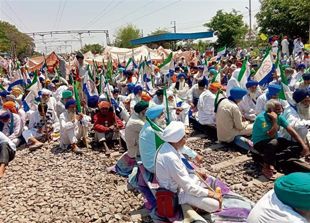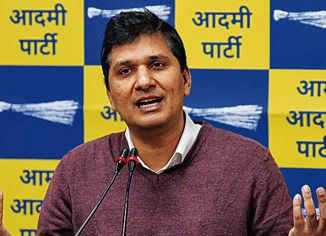Arun Joshi
A window of opportunity is wide open in Kashmir and the occasional smoke screens have not closed it. That’s becoming increasingly clear. All the fears that Kashmir would shut down and there would be massive violence over the hanging of 1993 Mumbai blasts convict Yakub Memon remained in the realm of thinking only. There were sleepless nights, but the people behaved in a mature fashion. They debated the issue and felt bad, but did not allow themselves to be used as a tool for violence on streets.
View it in the backdrop of the hanging of Zulfikar Ali Bhutto in April 1979 and the death of Pakistan’s military dictator Zia-ul-Haq in a plane crash in August 1988 when violence swept across the Valley. There were waves of arson in protest against Zulfikar Ali Bhutto’s hanging and many dwellings of Jamait-i-Islami activists were burnt down. Seventeen people had died and many others were wounded while protesting against the death of Zia-ul-Haq while not a single person had died in Pakistan.
Indeed a debate will go on in Kashmir whether Memon’s hanging was a miscarriage of justice or justice, but the fact is that Kashmir has shown a great sense of maturity that academic debates, howsoever vibrant, should not be allowed to be converted into arson and violence. A religious angle has been added to the debate, but that’s where it stands. It has its dangerous portents, but Kashmir has seen the limits to which the things can go. They have their own anger over the hanging of Parliament attack convict Afzal Guru in February 2013. That’s still there.
For Kashmir, the understanding of what others are doing for them has become clearer. It has been especially so after the meeting of Prime Minister Narendra Modi with his Pakistani counterpart Nawaz Sharif in Ufa, Russia, on July 10, in which for the first time Kashmir did not find any mention nor there was any discussion on that. Pakistan might have tried to demonstrate that Kashmir was discussed and that there would be no talks with India without the “core issue” of Kashmir, but the prescient people of the Valley have seen through volte face of Pakistan. India has stood its ground and has not reacted to all this because New Delhi wants to keep its commitment to the dialogue alive.
The upshot is that Kashmir has understood where Pakistan stands and what India is. A hope is still alive among Kashmiris. It is for the Indian nation to translate this hope into a reality. There are so many problems and so many issues which cannot be addressed all at once, but some issues can be picked up one by one and addressed in a phased manner. The people are impatient, but the real test of the governance is to keep the hope alive and take everyone along on the path of development, transparency and accountability.
An underlined and collective responsibility is also to ensure that there is no human rights violation in Kashmir from the state forces. In the past 25 years, Kashmir has become a template of human rights abuses from both sides — the state forces and militants. A 2006 Human Rights Watch report, “Everyone Lives in Fear: Patterns of Impunity in Jammu and Kashmir”, documented the abuses, including custodial killings by the security forces and unspeakable atrocities by militants, armed, aided and abetted by Pakistan.
The people of Kashmir have been caught in such a situation that this year — 2015 — they are recalling all the human rights abuses that took place in the state in the past quarter century. The calendar year for the start of armed militancy in Kashmir is pegged at 1990. The people don’t want to see any human rights abuses from either side. They want to step into the future, not live in the past.
Narendra Modi government has to honour the mandate that the people of the state had given to his party BJP and the PDP. Chief Minister Mufti Mohammad Sayeed had displayed his conviction in embracing the mandate delivered by the people of Jammu. So far, the things are going the way those should have been — it’s only five months that the PDP-BJP government is in place — but there is an urgent need to end polarisation and radicalism. For that both Modi and Mufti have to open wide the window of opportunity in the state. This is a moment which should be seized.



























